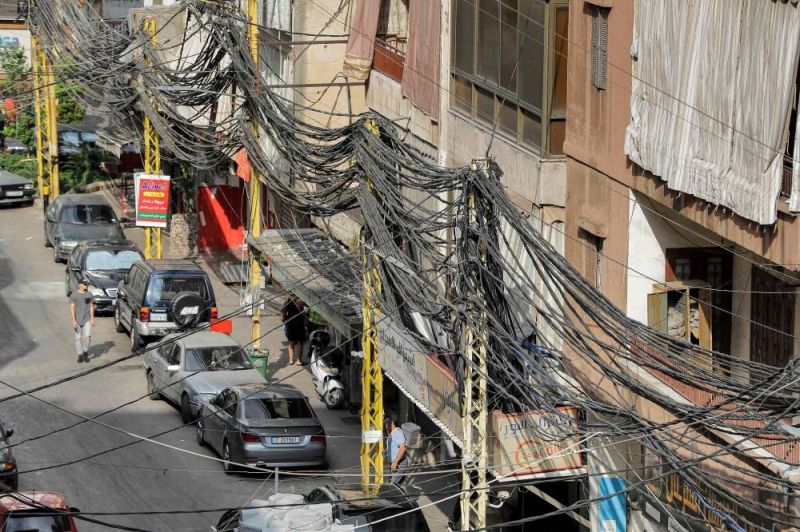
The owners of private generators that provide a vital backup to Lebanon’s decrepit power grid yesterday warned of their own power cuts due to lack of fuel. (Credit: Joseph Eid/AFP)
Want to get the Morning Brief by email? Click here to sign up.
Judge Ghassan Khoury approved the release of seven junior port employees detained as part of the Aug. 4 Beirut blast probe. The Court of Cassation advocate-general’s approval followed a request on Tuesday from Judge Tarek Bitar, the lead investigator on the case, that 13 port workers be freed from custody. Six other detainees were released in mid-April, meaning that of the 25 people arrested in the aftermath of Aug. 4 for their alleged involvement in the explosion, 12 now remain in indefinite detention. Among those still in custody are several senior officials, including Customs chief Badri Daher. As the one-year anniversary of the devastating explosion approaches, the government still has not provided any answers as to the cause of or culpability for the tragedy, despite having promised to do so within five days of the blast. While the investigation creeps forward, communities affected by the explosion continue to grapple with its fallout. A report released this morning by the NGO Oxfam draws attention to its effects on LGBTQI community members living or working in the affected neighborhoods, finding that 35 percent had been forced to find new accommodations as a result of the blast and 10 percent had been left with no permanent living space at all.
Private generator owners warned that fuel shortages are seriously jeopardizing their ability to continue providing power. With state electricity outages exceeding 20 hours a day in several areas, generator operators are struggling to secure sufficient diesel to fill the gap. Abdo Saade, head of the private generator owners’ syndicate, said yesterday that some operators have already informed their customers that they will no longer be able to provide electricity and warned that others will follow suit if no solution is found. Meanwhile, fuel prices increased in Lebanon yesterday following the rise of petroleum prices in international markets, the Energy Ministry’s data shows. The price of 20 liters of 98-octane gasoline and a tank of household gas rose by LL1,800, reaching LL46,600 and LL28,400, respectively. The price of 20 liters of 95-octane petrol went up by LL1,700 to LL45,200, while a 20-liter tank of diesel now costs LL33,300, representing a LL1,800 increase from the previous week.
Banque du Liban has not honored foreign currency payments to subsidize sugar imports, an Economy Ministry spokesperson told L’Orient Today. Although it has not officially removed the subsidy on sugar, the central bank has stopped providing dollars to import the ingredient, the spokesperson said. While the ministry specifically blamed the de facto end of the sugar subsidy as a factor in its Tuesday bread price hike — the seventh this year — very little sugar is in fact used in the bread-making process — approximately 35 kilograms per ton of flour, the CEO of a bakery chain told L’Orient Today. Previous bread price hikes have followed rises in wheat prices on the global market, as well as increases, due to Lebanon’s national currency’s plunge in value since January, in the cost of non-subsidized products involved in producing and packaging a loaf of bread.
A parliamentary joint committee will examine a fusion of two previously presented ration card plans. The joint committee will convene today at 10:30 a.m. to evaluate a finalized law proposal that combines elements of the government’s and the Free Patriotic Movement’s respective plans to replace state subsidies on essential goods with a ration card system for vulnerable families. The proposal, prepared by a subcommittee established specifically for the task, entails handing out between $53 and $185 dollars to 750,000 Lebanese families, according to a report prepared by the subcommittee and seen by L’Orient Today. Rolling out the program would cost the state $361 million, the law proposal says, without mentioning from where these funds would come. A lawmaker previously told L’Orient Today that the cards could be funded by asking the World Bank to reallocate some of several undisbursed loans worth almost $1 billion to cover the program. If the World bank does not cover the costs, lawmakers would have no choice but to dip into BDL’s mandatory reserves to fund the ration cards, caretaker Premier Hassan Diab and FPM leader Gebran Bassil have previously said.
